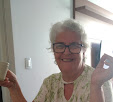B. B. KING
SONGWRITERS: JULES TAUB & RILEY KING.
COUNTRY: U. S. A.
ALBUM: THREE O’CLOCK BLUES
LABEL: RPM RECORDS
GENRE: BLUES
YEAR: 1951
B.B. King
recorded "3 O'Clock Blues" for RPM Records around September 1951. The recording took place at an improvised
studio in a room at the Memphis YMCA and the resulting audio quality was lower than recordings by Sam Phillips, who had
recorded King's previous singles. Nonetheless, writer Colin Escott notes that
the song "clicked where the others hadn't the new found drama and urgency
in B.B.'s singing the interplay between his voice and guitar, heard for the
first time on record". The mingling of these two elements was brought to
the forefront by the distant, subdued sound of the accompanying musicians.
King's
version is a slow (65 beats per minute) twelve-bar blues notated in 12/8 time in the key of C. Blues historian Robert Palmer sees King's guitar work on the song as showing his T-Bone Walker influences, "though his tone was bigger and rounder and his
phrasing somewhat heavier". He borrowed Walker's technique of repeating a
pitch on neighboring strings by sounding a note then sliding up to the same
pitch on the successive lower string. This method allows the player to shift to
higher position while creating a unique effect that emphasizes "tonal
contrast". King also used melisma,
a vocal technique found in gospel music, in which he bends and stretches a
single syllable into a melodic phrase. Unlike Fulson, King used a full backing
arrangement, including a horn section (including Evelyn Young on saxophone) and Ike Turner on piano.
Riley B.
King (September 16, 1925 – May 14, 2015), known professionally as B.B. King, was
an American singer-songwriter, guitarist, and record producer. King introduced
a sophisticated style of soloing based on fluid string bending and shimmering vibrato that influenced many later blues electric guitar players.
King was
inducted into the Rock and Roll
Hall of Fame in 1987, and is one of the most
influential blues musicians of all time, earning the nickname "The King of the Blues", and is considered one of the
"Three Kings of the Blues Guitar" (along with Albert King and Freddie King, none of
whom are blood related). King performed tirelessly throughout his musical
career, appearing on average at more than 200 concerts per year into his 70s. In
1956 alone, he appeared at 342 shows.
King was
born on a cotton plantation in Itta Bena,
Mississippi, and
later worked at a cotton gin in Indianola,
Mississippi. He was attracted to music and
the guitar in church, and began his career in juke joints and local radio. He later lived in Memphis, Tennessee,
and Chicago, and as
his fame grew, toured the world extensively. King died at the age of 89 in Las Vegas, Nevada, on May 14, 2015.
Now it's three o'clock in the morning
And I can't even close my eyes
It's three o'clock in the morning, baby
I can't even close my eyes
Can't
find my baby
And I
can't be satisfied
I've
looked around me, people
And my baby, she can't be found
Hey, I've looked all around
And my baby, she can't be found
You
know, I can't find my baby
I think I'm going down
I'm going down to the golden ground
That's where the men hang out
Goodbye,
everybody
I do believe this is the end
Yeah, goodbye, everybody
I believe this is the end
I want
you to tell my baby
Ah, to forgive me for my sins
Forgive me for my sins.







0 comentários:
Postar um comentário